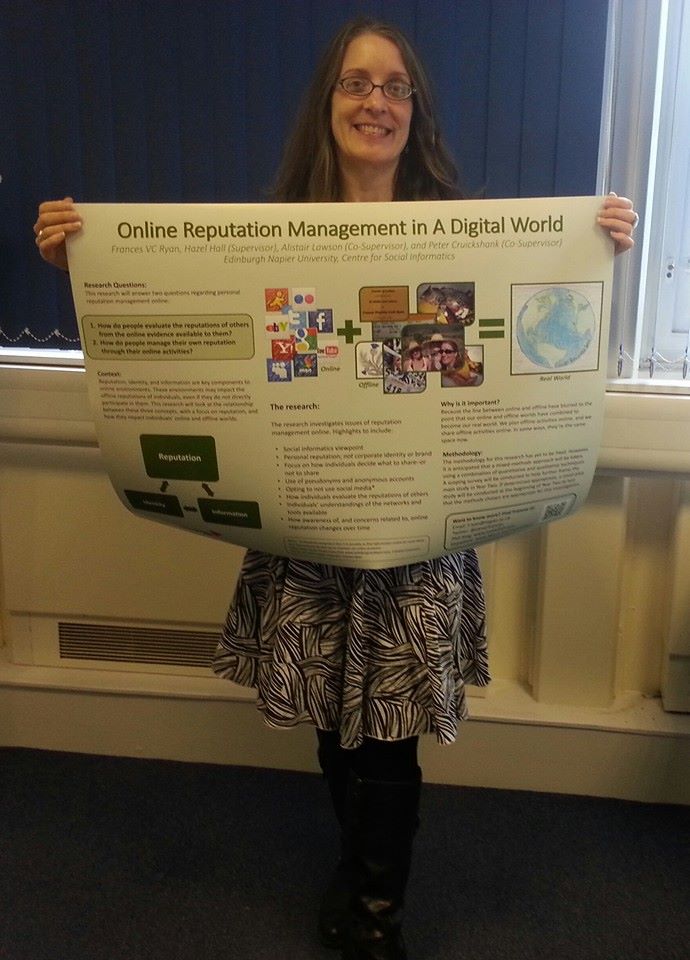I completed my first academic poster today, ahead of the 2014 SICSA PhD Conference in St Andrews next week. The poster is based on a 1-page abstract that I sent to the poster panel in April.
I struggled with how to design the poster because I thought I had to include all of the information from the abstract on the poster. That would have meant the poster was very text-heavy, which is something I’m not keen on. (I know many academic posters are mostly words, but I am more of a visual person.)
However, on meeting with two of my supervisors yesterday, I was told that wasn’t the case. In fact, they both agreed that less text is better! The decision was then made that I’d use this as a test poster to see how far I can push the boundaries between text and design.
I am not overly keen on my first attempt, but I am excited about the lessons I’ve learned so far. And I already have a list of things to change (improve!) for my next poster presentation in July.
My hope for this poster is that I will gain some useful feedback from the judging panel about what works and what doesn’t work.
And, of course, I also hope that I can win one of the poster prizes. But I have to be realistic and realise that a poster designed in less than 24 hours probably won’t win! (Still … fingers crossed!)
ABSTRACT:
Research questions: The proposed research will answer two questions regarding personal reputation management online:
(1) How do people evaluate the reputations of others from the online evidence available to them?
(2) How do people manage their own reputation through their online activities?
Context: Reputation, identity, and information are linked with individuals in online environments. This research will investigate the relationship between these three concepts. The work’s main focus is how reputations are generated, conceived and managed. It will consider the impact of reputation in the online and offline worlds of individuals.
The research: The proposed research investigates issues of reputation management online from a social informatics perspective. It focuses on how people determine which information to share with (or obscure from) others in order to protect their reputation, in both on- and off-line environments. The findings of the work will apply to those who actively maintain an online presence and those who do not.
The study will investigate methods of online reputation management. These include self-censorship, setting privacy levels, and the deployment of alias profiles. Individuals’ understandings of the networks and tools available will also be explored. The work will consider whether awareness of online reputation changes as the availability of publicly accessible online tools increases.
Further, this research will uncover how individuals evaluate the reputations of others based on the evidence available to them online at a given time. It is anticipated that this aspect of the study will determine the level of importance online information holds in the assessment of an individual’s overall reputation.
Methodology: The methodology for this research has yet to be fixed. However, it is anticipated that a mixed-methods approach will be taken, using a combination of quantitative and qualitative techniques. A scoping survey will be conducted to help further frame the main study in Year Two. If determined appropriate, a small pilot study will be conducted at the beginning of Year Two to test that the methods chosen are appropriate for this investigation.
View a large version of the poster here.
I hope that the poster is fairly self-explanatory (although I know it’s brief). If you’d like more information though, please get in touch.
Stay tuned for an update on my first PhD conference next week. (And who knows, maybe I’ll be able to tell you I won a prize!)
[Photo Copyright Samuel Chinenyeze, one of my PhD office mates.]
